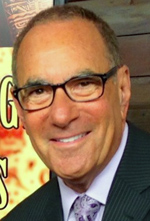
By Michael Mantell, PhD
SAN DIEGO–In a commencement address at Smith College in 2013, Arianna Huffington equated our insatiable drive to attain money and power as two legs on a three-legged stool. While you may balance on two legs for a while, a fall is inevitable. The third leg of success, Huffington argues, is our well-being. As the Senior Fitness Consultant for Behavioral Sciences for The American Council on Exercise, I can attest the importance of investing in the wellbeing of you, through eating well, exercising and taking steps to prevent illness, rather than retroactively respond to it.
A renewed focus on promoting optimal health and full wellbeing is especially important for the baby boomer generation, and doing so is becoming a whole lot easier. According to IBISworld, a market research provider:
As baby boomers age beyond their 50s, health care costs will rise, creating incentives for insurers to promote preventive practices like fitness participation. As such, the next five years will mark a shift from disease treatment to disease prevention and health promotion by encouraging people to monitor their health.
Our system is not a health care system. It’s a disease care system. Dr. Richard Carmona, the 17th Surgeon General of the United States, said that our system, “rewards providers for taking care of people who get sick. Incentives aren’t properly aligned because health professionals make their revenue by treating people who have disease.” We spend three-quarters of our health expenditures on treatment of largely preventable chronic diseases, Dr. Carmona noted.
Someone who recognized this market trend and is responding to this fundamental shift in how Americans take care of themselves is Michael Piermont, CEO of amSTATZ, a web-based platform for certified fitness professionals and their clients to connect between training sessions. I had the chance to interview Michael recently. The following is an excerpt from our conversation.
Mantell: You’ve said that, “the future of Americans’ wellbeing is held in the hands of a certified fitness professionals, not necessarily in the hands of doctors. I totally agree. Could you elaborate?
Piermont: Sure. Since The Affordable Care Act was signed into law, it’s become clear that, as the cost of providing health insurance to employees goes up, businesses are going to look for ways to reduce costs. Incentivizing a workforce to engage in preventative care is one option. Corporate wellness programs, both activity and outcome based, will continue to grow. We think these programs are most effectively implemented when managed by a certified fitness professional. There’s so much that can be done to prevent the onset of illness. We think working with a health coach to set monthly, quarterly or yearly fitness goals, and to help you stay on track, will continue to grow in popularity.
Mantell: How do you see certified health coaching positively impacting the baby boomer generation? Seems to me my acronym “THEAMO” applies (thinking well,eating healthy and moving consistently)?
Piermont: I was listening to Dr. Ezekiel Emanuel speak on Squawk Box, the other day, and he was discussing how physicians assistants and registered nurses will play a greater role in treating routine illnesses, which will give doctors more time to focus on “really important cases.” Now, on the illness prevention side of things, we see this as an opportunity for health coaches, to help millions, not the least of whom will be baby boomers. Health coaches stand to play a major role in preventing the onset of illness through a focus on behavior change through healthy thinking, appropriate fitness and nutritional wellness. I think we will see a dramatic shift in the way people seek care, and I think we will see more and more people maintain an ongoing relationship with a health coach, which would reduce the need for more expensive “sickcare.”
Mantell: How is technology helping this shift in Americans’ mindsets be easier?
Piermont: Tracking workouts and making your own workout plans continues to grow in popularity. The quantified self movement continues to gain momentum. Connected devices, Fitbit, Jawbones, etc. make logging your activity almost effortless. But what is the average American to make of all this data? This is the opportunity for the health coach. As a consumer, I may have begun to quantify my physical activity, but I could still benefit greatly from working with a certified professional to understand what all my data is telling me. Technology should enable you to stay connected to a health coach and benefit from their expertise, without needing an in-person appointment.
Mantell: So you see the health coach as a new entrant into the circle of advisors that Americans would want to maintain as they move through the various stages of life?
Piermont: Absolutely, that’s spot on. We all could do our own taxes, and plan our retirements, or make our own stock trades. But the reality is, we’re all busy, so we outsource those tasks to certified experts. We see someone’s wellbeing and physical fitness management as a new entrant into this category. You want to be healthy, and having a health coach monitor your trends and plan, at a much lower cost than you’d get from a doctor, is a great idea.
*
Dr Michael Mantell, based in San Diego, is a Senior Fitness Consultant for Behavioral Sciences, American Council on Exercise, best-selling author and international behavior science presenter and keynote speaker. He may be contacted via michael.mantell@sdjewishworld.com. This article initially appeared in the Huffington Post Healthy Living section.
*
San Diego Jewish World seeks sponsorships to be placed, as this notice is, just below articles that appear on our site. This is an ideal opportunity for your corporate message or to personally remember a loved one’s contributions to our community. To inquire, call editor Donald H. Harrison at (619) 265-0808 or contact him via donald.harrison@sdjewishworld.com
*